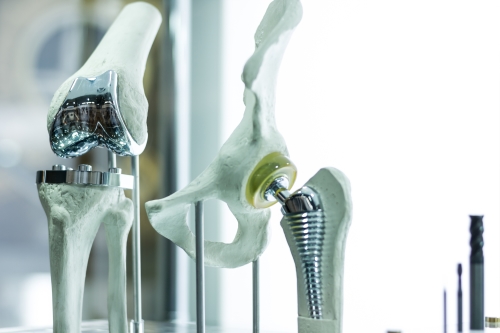- Written By:Robert F. Greiner, DO
We run on them. We pray on them. We twist, bend, and bump them. We crawl on them and jump with them and abuse them over and over. And, yet, they faithfully take it all. Until the day they don’t.
Our knees are amazing machines. But, over time, machines wear down. When the pain starts to hold you back from taking the dog for a walk, playing with the kids, or walking up the stairs, it’s time to consider your options.
The American Academy of Orthopedic Surgeons reports that almost half of all American adults develop knee osteoarthritis in at least one knee during their lifetime. While knee surgery is not the first option, the fact remains many of us will have to deal with serious knee pain at some point. So when is the right time for knee surgery?
First, you want to talk to your doctor about your knee pain. Typically, your doctor will want to start with over-the-counter options like Tylenol or ibuprofen to fight the inflammation and decrease pain. There are also topical creams or ointments available that have a similar effect, without having to take a pill. Additionally, some elect to take nutritional supplements such as glucosamine and chondroitin, which, in some studies, have proven to work as well as nonprescription painkillers without the side effects.
A few other factors that can cause knee pain is lack of exercise and weight gain. The stronger your muscles are around your knee, the healthier your knee, so you want to exercise regularly. Plus, exercise keeps your knees from getting stiff and sore. Controlling your weight is also easier with consistent exercise. Did you know that every pound gained puts an extra three pounds of pressure on your knees? Losing a couple pounds or keeping weight off can have a profound impact on the health of your knees.
If over-the-counter medications, exercise, and weight loss don’t work, your provider may suggest a corticosteroid injection, also called a cortisone shot, which an anti-inflammatory injection. Another possibility is a viscosupplementation injection, which is a boost of hyaluronic acid, the natural joint fluid that keeps your knees moving smoothly. Both can relieve pain for several months.
Once all conservative options have been considered, and results aren’t promising, your doctor may suggest knee surgery. Luckily knee replacements are fairly routine these days. By 2030, total knee replacement surgeries are projected to reach 3.5 million per year and over 90% of those patients experience a dramatic reduction in pain.
Additionally, modern knee replacement technology has dramatically reduced recovery time. St. Mary’s Medical Center has recently begun scheduling patients for knee replacements using the very latest in robotic-assisted knee replacement – the NAVIOTM Surgical System. As a surgeon, this has been a game changer for my patients. The NAVIOTM gives me the ability to customize each surgery. It uses a sophisticated software program that collects precise information about each individual patient, so it is as minimally invasive as possible. Simply put, less unnecessary trauma to the joint means less time you’ll spend recovering and more time getting back to your life.
If you are interested in learning more, join me on Wednesday, November 29, from 6 – 7 P.M. I’ll be presenting a free knee pain seminar in the Education Center at St. Mary’s Medical Center. Just call 816-228-5900 to register.
Robert F. Greiner, DO, is a board-certified Orthopedic Surgeon and can be reached at 816-317-5070 via his website at greinerorthopedics.com.


